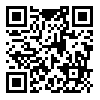BibTeX | RIS | EndNote | Medlars | ProCite | Reference Manager | RefWorks
Send citation to:
URL: http://jmdp.ir/article-1-2316-en.html
Nowadays, good governance is one of governance excellences which is famous around the world because it is used by the World Bank as a survey tool for periodical monitoring of governace around the world. Without doubt, good Govrnance could not be a comprehensive model for measuring governance excellence in different countries with different situational conditions. Hence, the purpose of this paper is to recognize limitations of good governance model with a contingency approach, and to develop a native model for measuring governance excellence in Iran.
This research is an analytical-critical method. A deep interview was used to identify twelve limitations regarding good governance, and by analyzing Islamic contents, an elementary model was developed. Results indicate that the good governance model suffers from following limitations: 1) a root in neo-liberalism values: 2) ignoring a multi-layer governance: 3) generalizing a western model of governance to other countries; 4) a loose scientific framework for modeling: and 5) inhenrent conflict among measuring indicators. In general, these deficiencies put a question on its generalization to the Islamic regimes. Hence, a model of decent Islamic governance was developed through analytical review on Islamic contexts.
Received: Apr 02 2016 | ePublished: Mar 15 2010
| Rights and permissions | |
 |
This work is licensed under a Creative Commons Attribution 4.0 International License. |







